T
he British arrived in India as a trading company, the British East India Company, on August 24, 1608, as dealers in spices, a highly significant commodity in Europe at the time, and eventually grew as a strong commercial and political organization that governed the entire Indian subcontinent.In 1765, the Mughal Emperor Shah Alam was forced by Robert Clive to award the Company the 'Diwani', the right to harvest Bengal, Bihar, and Orissa taxes. This supplied finances to strengthen the Company's military presence in the region.
Ultimately, the British East India Company established a military hegemony over competing European trading companies and local rulers of the state, culminating in 1757 with the subjugation of Bengal province.
In this post, we'll learn about the Governors-General of India and their role in India's subjugation during the colonial period for various Kerala PSC exams.
Governors-General of India
Table of Contents
List of Governors-General In British India (1773-1857)
Under Colonial rule, the Governors-General were initially in charge of the British government in India.
The post of Governor-General of the Presidency of Fort William was established in 1773. The officer was solely in charge of Fort William, although he oversaw other EIC officers in India.
Full control over all of British India was granted by the Charter Act of 1833, and the officials/representatives began to be known as the 'Governor-General of India.'
Governors-General of Bengal (1773-1828)
Warren Hastings (1772-1785)
Warren Hastings became Governor of Calcutta in 1772. It was during his term the Bengal Famine occurred, killing 10 million people.
Later he became the First Governor-General of Bengal in 1773 through the Regulating Act of 1773. His period is called “Trial & Error.”
- Last Governor of Bengal (1772-74).
- First Governor-General of Bengal (1774).
- Father of Judicial Reforms in India and Administrative organizer of the British Empire in India / British Empire Builder in India.
- The Governor General who had begun his career as a clerk in East India Company at Calcutta in 1750 – Warren Hastings.
- The Only Governor General of India against whom impeachment proceedings were initiated in England.
- The Governor General who ruled India for the longest period.
- Abolished Dual system of administration (1772).
- Creation of Board of Revenue (1772).
- Divided Bengal into districts and appointed Collectors (1772).
- Introduced the Izaredari system (1773) in Bengal.
- Under this system, the right to collect revenue was given to the highest bidder for a period of 5 years.
- Established the Supreme Court of Judicature at Fort William in 1774.
- Started two types of Courts: Diwani and Faujdari adalat at the district level and Sadar Diwani and Nizamat adalats (appellate courts) at Calcutta.
- Nanad Kumar incident (1775).
- The Digest of Hindu Laws was translated into English by N.B. Halhed in 1775.
- Refined Hindu and Muslim laws. A translation of the code in Sanskrit appeared in 1776 under the title of "Code of Gentoo Laws."
- Raja of Banaras, Chait Singh affair (1778).
- Publication of the First Indian Newspaper (weekly) called Bengal Gazette or Calcutta General Advertiser (1780) under James Augustus Hickey.
- Act of 1781, under which the powers of jurisdiction between the governor-general-in-council and the Supreme Court at Calcutta, were clearly divided.
- Founded the Calcutta Madrasa / Madarasa Aliya (1781), for the promotion of Islamic studies.
- Begums of Oudh / Awadh affair (1782).
- Pitts India Act of 1784 – To rectify the defects of the 1773 Act.
- Founded the Asiatic Society of Bengal with Sir William Jones in 1784.
- Wrote introduction to the first English translation of the Gita by Charles Wilkins.
Wars, Treaties & Territorial Expansion
- Treaty of Banaras (1773)
- Rohilla war (1774) and annexation of Rohilkhand by the Nawab of Awadh with the help of the British East India Company.
- Treaty of Surat (1775) between Raghunath Rao and Warren Hastings, but rejected by the Council of Calcutta.
- First Anglo-Maratha War (1776-82) and Treaty of Salbai (1782).
- Treaty of Purandar (1776) between English and Peshwa.
- The Treaty of Wadgaon (1779) was rejected by Warren Hastings.
- Second Anglo-Mysore War (1780-84) with Haider Ali and Treaty of Mangalore (1785) with Tipu Sultan.
He was impeached in England for his wrong-doings, namely The Rohilla War, Case of Raja Chait Singh, and Begums of Oudh for 7 years (1788-1795). Later he was exonerated from all the charges.
Lord Cornwallis (1786-1793)
- Father of Police Reforms in India.
- Father of the Civil Services in India.
- The first person to become the Governor General of India twice (1786-95 &1805).
- The first Governor General who passed away while in power.
- Served as a British general during the American War of Independence.
- Sanskrit College was founded in Banaras (1791) by Jonathan Duncan.
- A New Police System was introduced in 1791.
- Introduction of Cornwallis Code (1793),
- based on separation of powers.
- separated the financial / revenue from the judicial functions/administration
- Created the post of district judge (1793) appointed collector as the head of revenue administration and divested his judicial and magisterial powers.
- The distinction between revenue and civil cases was abolished.
- Introduced Permanent Settlement / Zamindari system in Bengal and Bihar (1793).
- Introduction of Civil Services in India in 1793.
- The Act of 1786 empowered the Governor General to override the council's decision.
- Codified the Personal Laws.
- Set up four Appellate Courts at Calcutta, Dhaka, Patna & Murshidabad.
- Adopted a policy of the Europeanisation of bureaucracy and an exclusion of Indians from higher posts.
- Died at Ghazipore on the Ganges River where his grave and monument are still maintained by the Indian government.
<
Wars, Treaties & Territorial Expansion
- Third Anglo-Mysore War & the defeat of Tipu Sultan (1790-92).
- Treaty of Seringapatam / Srirangapatinam (1792).
Sir John Shore (1793-1798)
- Famous for his Policy of Non-Interference.
- Introduction of First Charter Act (1793).
- Battle of Kurdla / Kharda / Khadra (1795)
- between Nizam and the Marathas.
- Planned Permanent Settlement with Cornwallis and later succeeded him (1793).
- A regulation prohibiting female infanticide was passed in 1795.
Lord Wellesley (1798-1805)
- Akbar of British India.
- Introduction of the policy of the Subsidiary Alliance system to achieve British supremacy (1798).
- The first state to enter the Subsidiary Alliance system was – Hyderabad (1798).
- The other states that signed the alliance –
- Mysore & Tanjore (1799),
- Awadh (1801),
- Peshwa (Marathas) (1802)
- Scindia (Marathas) (1803)
- Gaekwad (Marathas) (1803) &
- Bhonsle of Berar (1803).
- The Sindhia of Jodpur (1804).
- It was termed as a Non-Intervention Policy.
- Under the system, the Indian states were forced or compelled to have a British official as a resident at court and also to accept permanent British force and pay a subsidy for its maintenance.
- Disbanding of the State's standing army.
- Censorship of Press Act, 1799 to impose wartime press restrictions.
- Formation of Madras presidency (1801).
- after the annexation of the kingdoms of Tanjore and Carnatic.
- Printing Press at Serampore.
- Foundation of Fort William College.
- Described himself as a Bengal Tiger
Wars, Treaties & Territorial Expansion
- The first treaty with Nizam (1798).
- Fourth Anglo-Mysore War (1799).
- defeat and death of Tipu Sultan
- Second Anglo-Maratha War (1803-1805).
- the defeat of the Sindhiya, the Bhonsale, and the Holkar.
- Treaty of Bassein (1802) with Peshwa.
- Lord Lake captured Delhi and Agra and the Mughal emperor was put under Company's protection.
- Took over the administration of Tanjore (1799), Surat (1800), and Carnatic (1801).
Sir George Barlow (1805-1807)
- Sepoy Mutiny of Vellore (1806).
- Attempted the restoration of peace talks with Scindhia and Holkar.
Lord Minto I (1807-1813)
- Sent the Malcolm Mission to Persia and the Elphinstone's Mission to Amir Shah Shuja of Kabul (1808).
- Treaty of Amritsar (1809) with Ranjit Singh
- Charter Act of 1813.
Lord Hastings / Earl of Moira (1813-1823)
- Replaced the policy of Non-Intervention with an Imperialistic Policy of war.
- The first British officer to appoint Indians to the highest post of responsibility.
- Creation of Bombay Presidency (1818).
- Abolished Peshwaship.
- Introduced the Ryotwari settlement in Madras by Sir Thomas Munro, the Governor (1820)
- Introduced the Mahalwari system of land revenue in Bombay and north-western Provinces
by James Thomson. - Considered Rajputs as the natural allies
- Abolished the censorship of the press.
- The First vernacular newspaper in India, Samachar Darpan / Samachar Patrika (a Bengali Weekly, 1818).
- Published by – Carey & Marshman from Serampore.
- Bengal Tenancy Act, 1822.
Wars, Treaties & Territorial Expansion
- Anglo-Nepalese (Gurkha / Gorkha) War (1813-1823).
- Treaty of Sugauli / Segowlee / Sequelae (1816).
- between the East India Company and the King of Nepal.
- Treaty of Poona (1817) with Peshwa.
- Anglo-Maratha War III (1817-1818) and dissolution of the Maratha Confederacy.
- Pindari war (1817-1818).
- Annexed all Indian territories except Punjab and Sindh by 1818.
Lord Amherst (1823-28)
- First Burmese War (1824-1826)
- Treaty of Yandaboo (1826).
- with lower Burma (Pegu) by which British merchants were allowed to settle on the southern coast of Burma and Rangoon.
- Acquisition of territories in the Malay Peninsula (1824).
- Barrackpore Mutiny in 1824.
- The capture of Bharatpur (1826).
Governors-General of India (1828-1857)
Lord William Cavendish-Bentinck (1828-35)
After the enactment of the Charter Act of 1833, Lord William Bentinck became the last Governor General of Bengal and the First Governor General of India.
© National Maritime Museum, Greenwich London
- Father of Modern Western Education in India.
- Last Governor General of Bengal (1833).
- First Governor General of India (1833).
- Abolition / Prohibition of Sati (1829).
- Banned female infanticide (1829).
- Banned human sacrifice.
- Suppression of thuggee/thugs (1829-35).
- Military operations were led/curbed by William Sleeman in 1830.
- Annexed Mysore (1831), Coorg (1834), and Central Chachar (1834) on the plea of misgovernment.
- Charter Act / Regulation of (1833).
- Martins Bird (Father of land revenue settlement in North).
- First Law Commission (1834).
- as a result of the Charter Act, of 1833 under the chairmanship of Lord Thomas Babington Macaulay.
- The first to become a Law Member of the Governor General’s Council - Lord Thomas Babington Macaulay.
- Agra was created as a province (1834).
- Macaulay's Minutes on Education (1835).
- English was made the official language of India (1835).
- Abolition of the provincial court of appeal and circuit set up by Cornwallis.
- Appointment of commissioners of circuit and revenue.
- Introduction of the residuary system.
- Introduced the Mahalwari system of land revenue in India.
- Under this system, the land was divided into Mahals and there were one or more villages in each Mahal.
- Visited Allahabad to review the workings of the Mahalwari Land Revenue System.
Lord Charles Metcalfe (1834-1836)
- Liberator of the Press.
- Passed Press Law.
- Removed restrictions on the vernacular press and led to the development of the Indian Press during British Rule.
Lord Auckland (1836-1842)
- First Afghan War (1836-42).
- The signing of a Tripartite Treaty between the English, Ranjit Singh, and Shah Shuja of Afghanistan in 1838.
- Death of Ranjeet Singh (1839).
Lord Ellenborough (1842-1844)
- Termination of First Afghan Wars (1842).
- Annexation of Sindh (1843) by Charles Napier.
- War with Gwalior (1843).
- Abolition of slavery in India (1844).
- The Governor General who had been recalled due to differences with the Court of Directors – Lord Ellenborough.
Lord Hardinge I (1844-48)
- First Sikh War (1845-1846).
- Treaty of Lahore (1846).
- end of Sikh sovereignty in India.
- Prohibition of female infanticide and the practice of 'Mariah,' the human sacrifice among Khonds of central India.
- The Khond Uprising of Odisha (1837- 1856).
- Introduced Sunday as the weekly holiday for government offices.
- The Governor General of India who had lost his left hand in the Napoleonic Wars – Lord Hardinge I.
- The Governor General who succeeded his brother-in-law Lord Ellenborough – Lord Hardinge I.
Lord Dalhousie (1848-56)
- Maker of Modern India.
- Father of Indian Telegraph.
- Father of Indian Railways.
- Father of the Indian Postal system.
- Father of Indian Engineering Services.
- Youngest Governor-General of India (36 Years).
- Abolished Titles and Pensions.
- Ended the titles of Nawab of Carnatic, Surat, Raja of Tanjore, and Nawab of Awadh.
- Refused pension to Nana Saheb.
- The first experimental electric telegraph line between Calcutta and Diamond Harbour (1850).
- Charter Act of 1853.
- Six Legislative Members were added to the Governor General’s Council.
- Introduction of Railways (1853).
- The first railway line (32 km) in India between Bombay-Thana (1853).
- Services of Telegraph between Calcutta-Agra (1853).
- Introduction of Postal System (1853).
- Recruitment of the Civil Service by competitive examination (1853).
- Woods Dispatch on Education (1854).
- Opening of Anglo-Vernacular Schools and Government Colleges.
- The Indian Telegraph Act (1855).
- Widow Remarriage Act (1856).
- Santhal uprising (1855-56).
- Introduced Bon-Regulation System – the system of centralized control in newly acquired territories.
- Separate Lieutenant Governor for Bengal.
- Establishment of the first engineering college – Thomson College for Civil Engineering (Roorkee).
- Formation of the Public Work Department (P.W.D) as a separate wing.
- Formation of Gorkha Regiment.
- Shimla was made the summer capital of British India and the Army headquarters was shifted to Shimla.
- The Artillery Headquarters was moved from Calcutta to Meerut.
- The Governor General decided in 1849 that following Mughal Emperor Bahadur Shah II's death, his successor would depart the Red Fort and relocate to a small residence near Qutb Minar.
Wars, Treaties & Territorial Expansion
- The most number of native states were annexed to the British Empire.
- Sikh War II (1845-1846)
- Annexation of Punjab (1849)
- Introduction of Doctrine of Lapse –
- If the ruler of a protected Indian state/province dies without a natural heir, his state will not pass to an adopted heir, instead, it will be annexed to the British Empire.
- Captured Satara (1848), Jaipur & Sambalpur (1849), Baghat (1850), Udaipur (1852), Jhansi (1853), and Nagpur (1854)
- Burmese war II (1852)
- Annexation of Berar (1853)
- Annexation of Oudh (1856)
Lord Canning (1856–58)
- The last Governor-General of the East India Company and the first Viceroy of India.
- Withdrew Doctrine of Lapse.
- Revolt of 1857.
- Passed the Government of India Act of 1858, which ended the rule of the East India Company.
- Three Universities were established in Calcutta, Bombay, and Madras (1857).
Conclusion
The British East India Company retained its role until the Government of India Act of1858, according to which its powers were handed to the British Parliament and the Vicerory of the India office, in the aftermath of the military and civil insurrection in the subcontinent's north.
The British EIC was eventually disbanded on June 1, 1874.
The above list of British Governors-General in India from 1773 to 1858 might assist Kerala PSC candidates and other job seekers in learning more about their policies, conflicts, and treaties that occurred throughout India's colonial period.
Please keep in mind that we did not include anything about Robert Clive in this post since that will be covered in a subsequent article.
Keep Reading:
📝SideNotes:
- Hegemony – domination of one power/state over the other states.
- The system of Dual Government in Bengal was established by – Robert Clive (1765).
- It lasted from 1765 to 1772.
- It divided Bengal into Nizamat (under the administration of the Nizam) and Diwani (the right to collect revenue from the East India Company).
- The annual allowance of the kings was reduced to 16 Lakhs from 32 Lakhs.
- Auctioned the right to collect land revenue to the highest bidder (1772).
- Regulating Act of 1773 – An Act to regulate affairs of East India Company in India by the British Crown, created the office of Governor General of Bengal, and abolished the Dual system in Bengal.
- Treaty of Wadgaon (1779) –
- The treaty was signed between the British East India Company and Marathas when the company was defeated by the Maratha Empire under Mahadji Shinde and Tukojirao Holkar in the Battle of Wadgaon (part of the First Anglo-Maratha War).
- The terms of the treaty were bad for the British as they would have to leave all their acquired territories in Western India since 1773 and had to pay Rs. 41, 000 as indemnity to Mahadji Scindia.
- Who was considered as the pioneer of the ‘Subsidiary Alliance’? Joseph François Dupleix (French East India Company).
Thanks for reading!!!







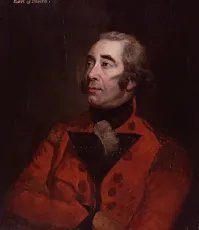
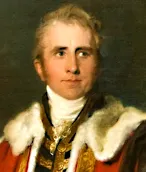

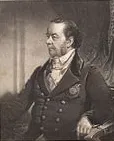


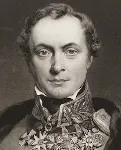
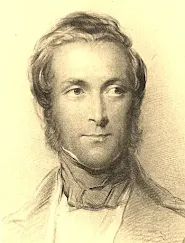
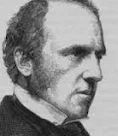
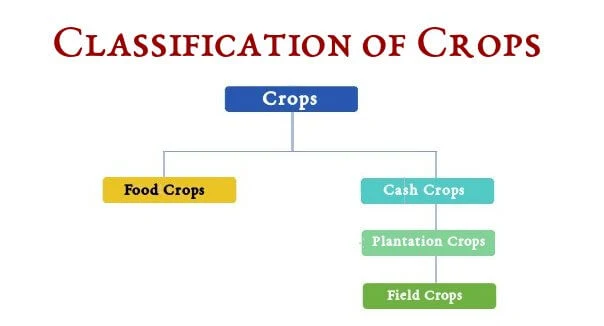
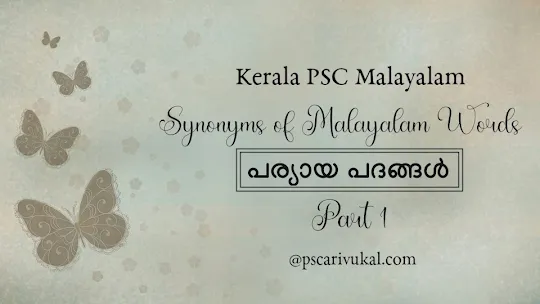
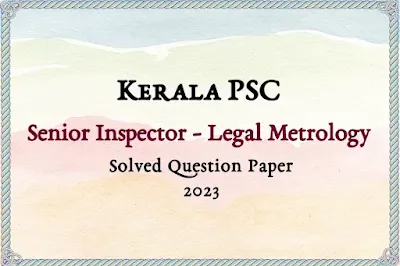



Post a Comment
Post a Comment